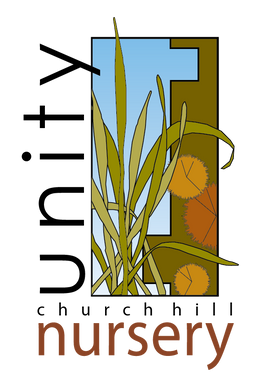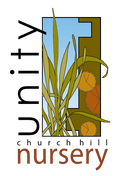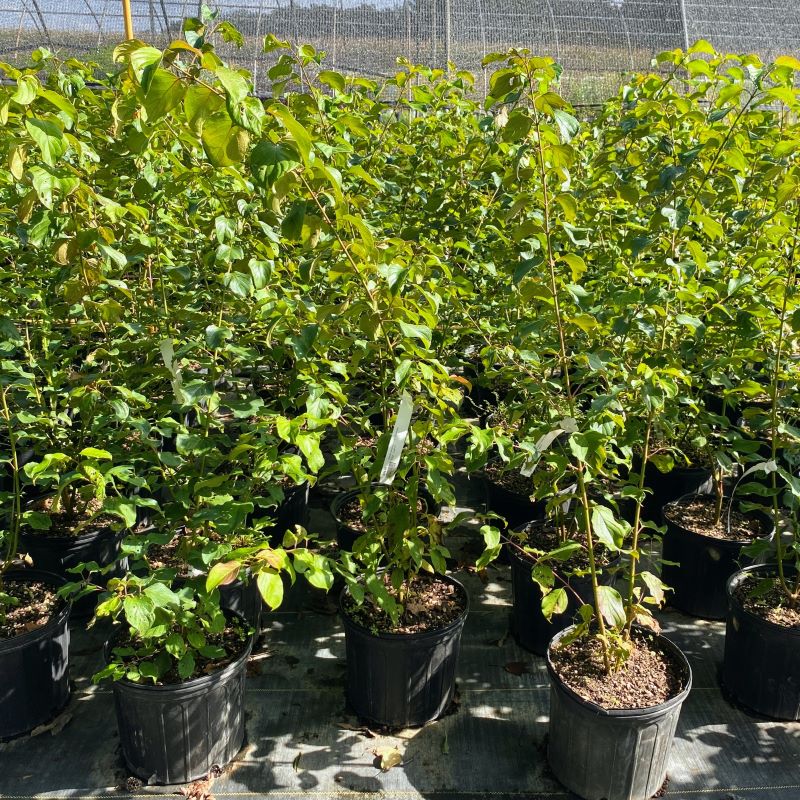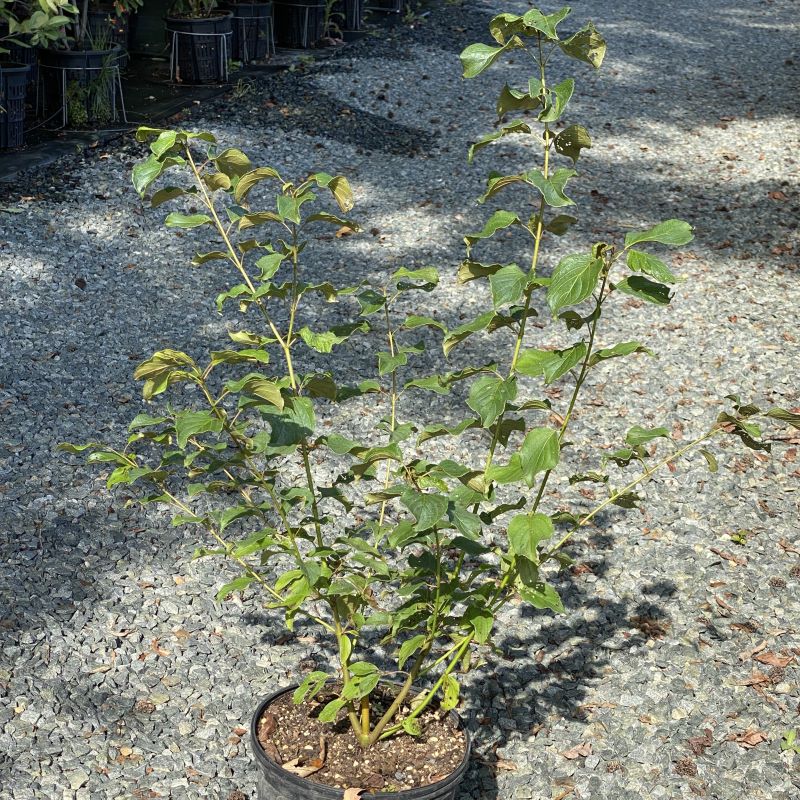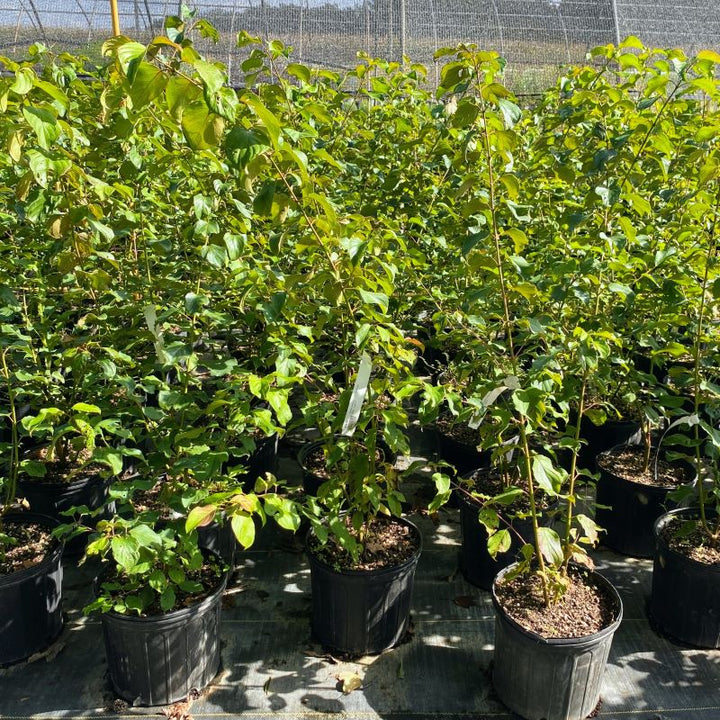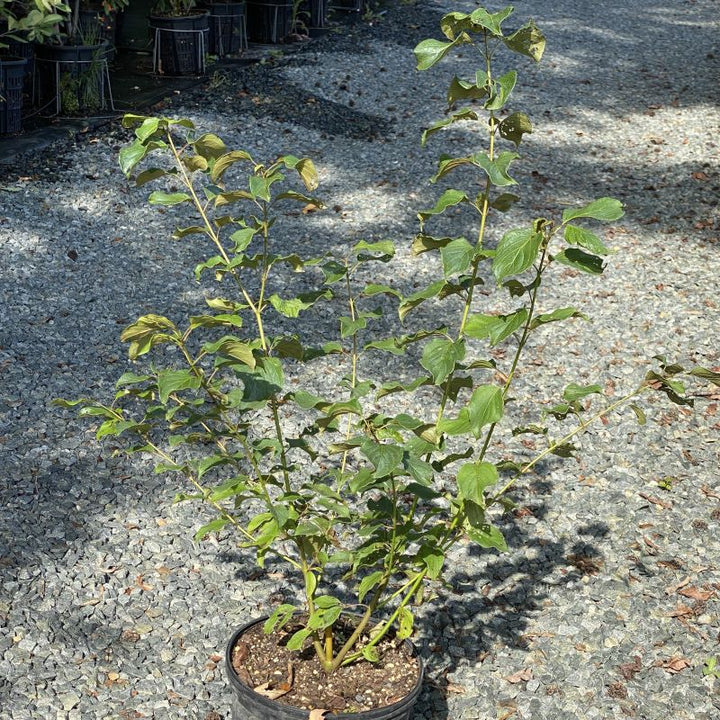Cornus amomum (Silky Dogwood) Unity Grown
- In Stock
- Inventory on the way
Cornus amomum is a medium to large deciduous shrub native to swamp borders, wetlands, and stream banks across much of the eastern United States. Also called silky dogwood, the common name refers to the small, silky hairs found on twigs and on the undersides of the plant's leaves. Although Cornus amomum can grow to 12' tall, it may grow out faster than it grows up, forming dense thickets up to 6-12' across if growth is not controlled (which might be beneficial for wetland restoration and naturalized hedges). Silky dogwood prefers things on the wetter side, but has wide tolerance of soil types and light levels.
A good choice for wetter, low-lying areas in the landscape, Cornus amomum works well as a natural screen, and for erosion control near stream banks or in rain gardens, but may prove too much work to maintain in more manicured landscapes. Though related to the common flowering dogwood (Cornus florida), silky dogwood blooms later in the season from May to June, and produces small lacecap clusters of white flowers instead of the typical wide-bracted flowers of the larger variety. In the summer months, these flowers turn to small blueish berries which attract many types of birds throughout the fall.
